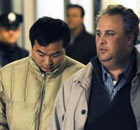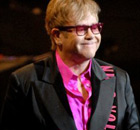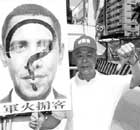Society
Expert tries to clear controversy over Cao's tomb
By Lin Shujuan (China Daily)
Updated: 2010-01-14 08:08
 |
Large Medium Small |
Following the discovery of a mysterious ancient tomb in a remote village of Henan province, a top Chinese archeologist said questioning the authenticity of the evidence could only improve their quality of work.
"When the public asks questions, or says something, we should listen. There is always wisdom hidden in the common man's words," said Shan Ji-xiang, Director of State Administration of Cultural Heritage (SACH).

On Dec 27, archeologists discovered Cao Cao's tomb in Xigaoxue, a village in Anyang county. The location of the mausoleum had remained a mystery for more than 1,000 years.
Cao (AD 155 to 220) was a warlord and the penultimate chancellor of the Eastern Han Dynasty, who was one of the central figures of the Three Kingdom period.
Soon after archeologists confirmed they had indeed discovered Cao's tomb, historians and several ordinary citizens expressed doubts over the authenticity of the evidence.
"It is great to see that the public is showing so much interest in archeology and history," Shan told China Daily in an exclusive interview.
He said he was personally involved in the excavation of the tomb and trusts the expertise of his team of archeologists, who have been thorough with their research on the mausoleum.
"The evidence we have found is strong enough to support our conclusion," Shan said, adding, "However, there is always room for discussion and improvement.
"Any archeological discovery is a continuous process of proving and reproving.
| ||||
He said like cultural and relics preservation, archeology, too, was everyone's business.
"Everyone has the right to be informed or get involved in any archeological discovery, as it is everybody's responsibility to carry forward cultural traditions," he said.
"We should never blame the public for raising questions just because they don't sound professional. The blame lies with us for not being able to educate the public."
Recently, one of the experts involved in the excavation of the tomb, criticized a scholar from Jiangsu province for raising "unprofessional questions" regarding the evidence to support the conclusion that the structure belonged to Cao.
Several people believe Cao's tomb lies in the riverbed of the Zhanghe River, which separates Anyang in Henan province from Handan, Hebei province, while others say the tomb is buried under the suburbs of Xuchang, his capital. And there are rumors the structure is in Cao's hometown Bozhou, Anhui province.
Experts said they have discovered a smaller tomb near Cao's mausoleum.
"The smaller tomb could have belonged to Cao's wife, who died in AD 230, 10 year's after Cao's death," they said.










